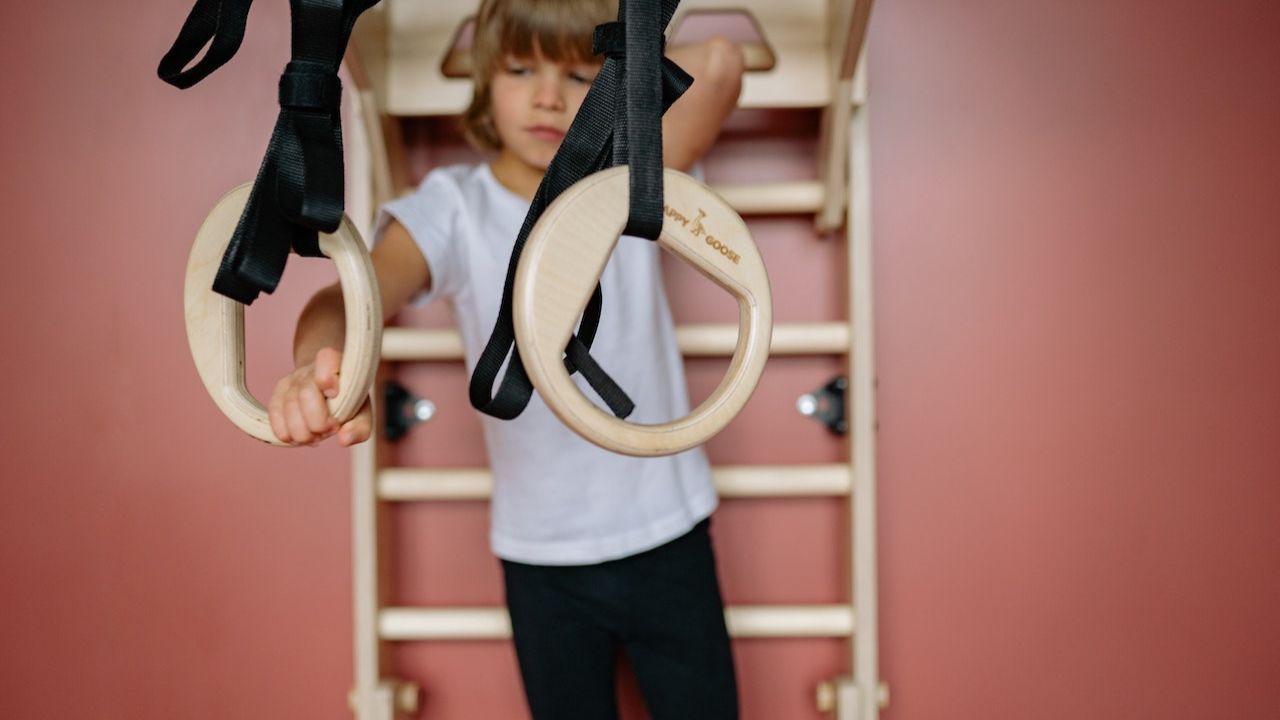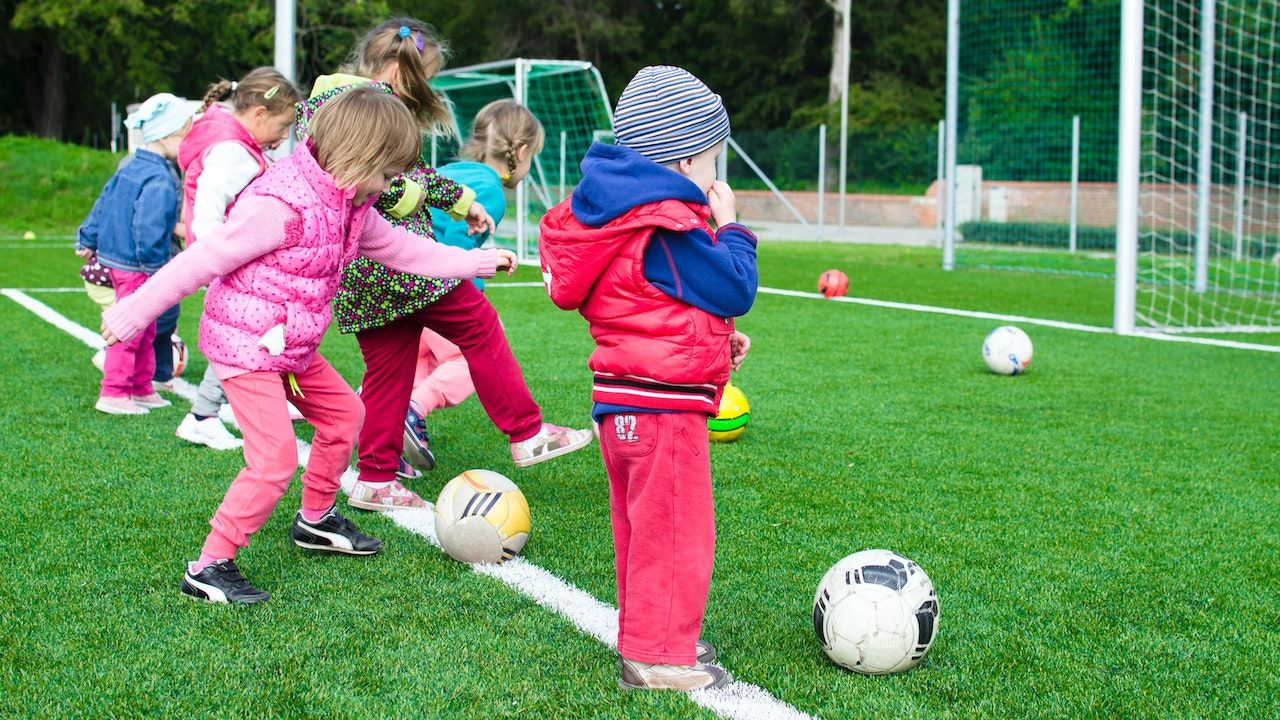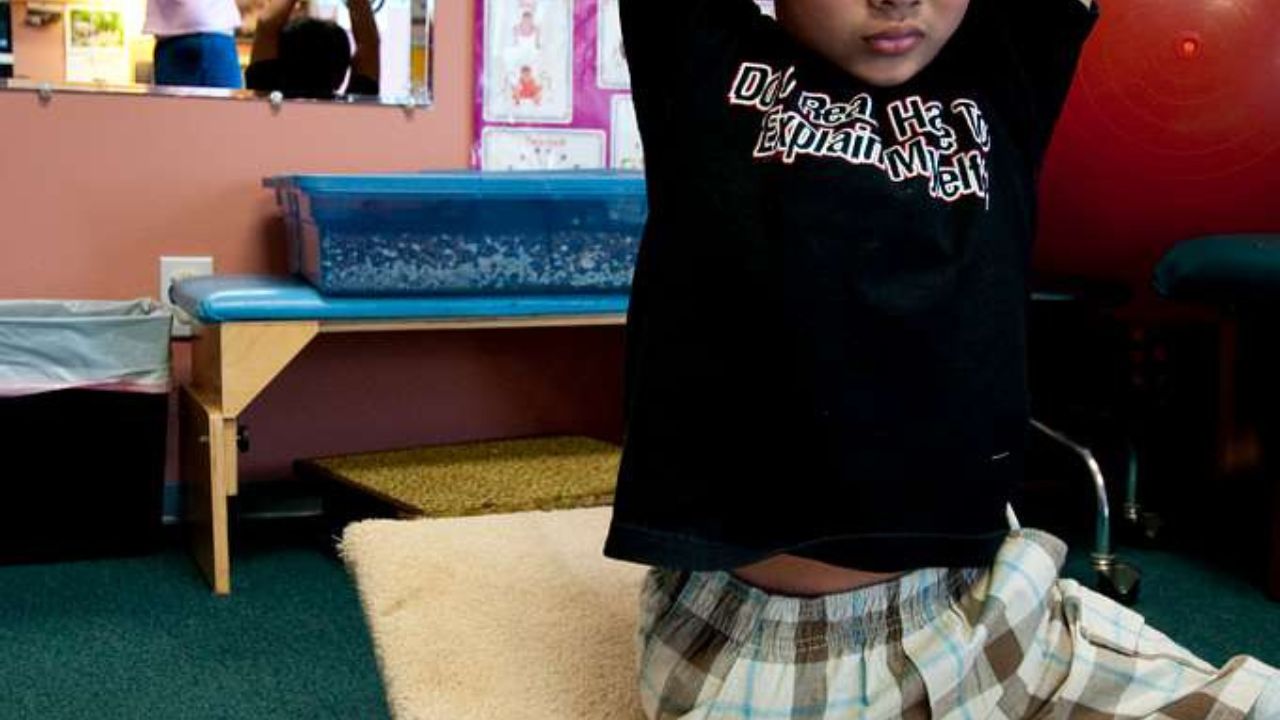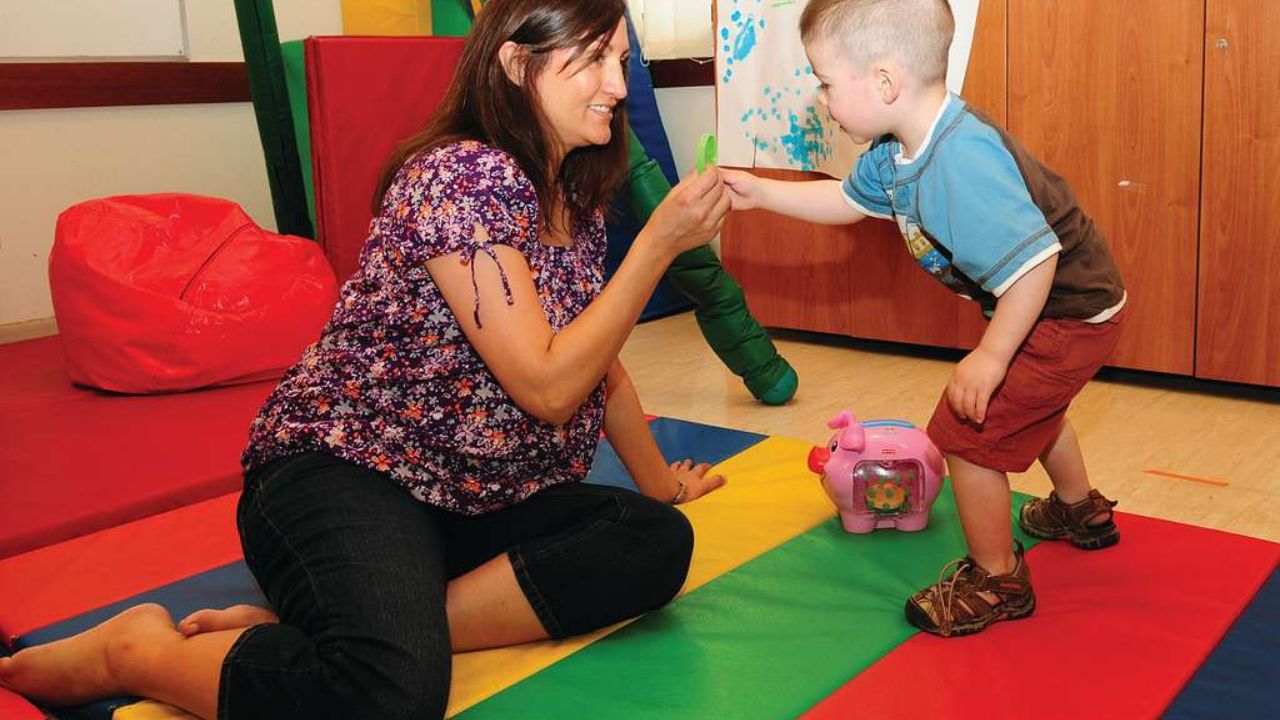
In the field of pediatric physical therapy, professionals face a multitude of challenges that require expertise and skill. This article explores the top 10 challenges every pediatric physical therapist should master.
From sensory integration disorders to developmental delays and chronic illnesses, these obstacles demand a professional's attention and expertise.
By understanding and addressing these challenges, pediatric physical therapists can provide the highest level of care to their young patients, promoting their physical well-being and overall development.
Sensory Integration Disorders
Undoubtedly, sensory integration disorders present unique challenges for pediatric physical therapists. These disorders affect the sensory processing and sensory modulation abilities of children, making it difficult for them to effectively interpret and respond to sensory stimuli in their environment.
Sensory processing refers to the brain's ability to interpret and organize incoming sensory information, while sensory modulation involves the regulation and control of responses to sensory stimuli. Children with sensory integration disorders may experience difficulties with sensory discrimination, sensory seeking or avoidance, and sensory-based motor planning.
As a result, they may struggle with activities such as dressing, feeding, and participating in social interactions. Pediatric physical therapists play a crucial role in helping these children develop strategies to improve their sensory processing and modulation skills, facilitating their participation and independence in daily activities.
Motor Coordination Difficulties
What are the key strategies for addressing motor coordination difficulties in pediatric physical therapy?

Motor coordination difficulties can pose significant challenges for children, affecting their ability to perform daily activities and participate in various physical activities. As a pediatric physical therapist, it is essential to develop effective strategies to address these difficulties and promote optimal motor functioning.
One key strategy is motor planning, which involves helping children develop the ability to plan and execute coordinated movements. This can be achieved through various activities, such as obstacle courses and sequencing tasks.
Another important strategy is balance training, which aims to improve a child's stability and coordination. This can be done through exercises that challenge balance, such as standing on one leg or walking on a balance beam.
Behavior Management
With proper guidance and consistent implementation, behavior management can be an effective approach for pediatric physical therapists to address challenging behaviors in their young patients. By utilizing positive reinforcement techniques and understanding the underlying reasons behind attention seeking behavior, therapists can help children develop more appropriate ways of expressing their needs.
Here are five strategies that can aid in behavior management:
- Establish clear and consistent expectations for behavior.
- Use praise and rewards to reinforce positive behaviors.
- Implement visual schedules and cues to help children understand and follow routines.
- Teach self-regulation techniques, such as deep breathing or counting to ten, to manage emotions.
- Collaborate with parents and caregivers to ensure a consistent approach across different environments.
Developmental Delays
Identifying and addressing developmental delays in pediatric patients is crucial for pediatric physical therapists, as they play a vital role in helping children reach their full potential.
Early intervention is key in identifying and addressing developmental delays, as it allows for timely interventions that can greatly improve outcomes.

Pediatric physical therapists utilize various treatment approaches to address developmental delays, tailored to each child's specific needs. These approaches may include therapeutic exercises, play-based activities, and functional training to promote motor skills development.
Additionally, therapists may incorporate assistive devices and adaptive equipment to support children with developmental delays in achieving their goals.
Orthopedic Injuries
Each year, thousands of pediatric patients present with orthopedic injuries, and it is essential for pediatric physical therapists to effectively address these challenges. In order to provide the best care for their young patients, therapists must be knowledgeable and skilled in managing a variety of orthopedic injuries. Some key aspects to focus on include:
Sports related injuries: These injuries can range from sprains and strains to fractures and dislocations. Therapists must have a thorough understanding of the specific demands of each sport and develop appropriate treatment plans.
Post surgical rehabilitation: After orthopedic surgery, physical therapy plays a crucial role in helping children regain strength, mobility, and function. Therapists must be proficient in post-operative protocols and exercises.
Injury prevention: Educating patients and their families about proper body mechanics, strengthening exercises, and injury prevention strategies is an essential part of a pediatric physical therapist's role.
Growth plate injuries: These injuries can significantly impact a child's growth and development. Therapists must be able to accurately diagnose and provide appropriate treatment to prevent long-term complications.

Musculoskeletal conditions: Pediatric physical therapists often encounter children with conditions such as scoliosis, musculoskeletal pain, and limb length discrepancies. It is crucial for therapists to have a comprehensive understanding of these conditions and the most effective treatment approaches.
Neurological Conditions
Children with neurological conditions often require specialized care from pediatric physical therapists to address their unique needs and challenges. These conditions can include neuromuscular disorders and traumatic brain injuries, which can significantly impact a child's physical abilities and overall development. Pediatric physical therapists play a crucial role in providing comprehensive care and support to these children, helping them improve their mobility, balance, coordination, and strength.
Neuromuscular disorders, such as muscular dystrophy or cerebral palsy, can result in muscle weakness, poor motor control, and impaired movement patterns. Pediatric physical therapists work closely with these children and their families to develop individualized treatment plans that focus on strengthening weak muscles, improving range of motion, and promoting functional abilities.
Traumatic brain injuries, on the other hand, can lead to a range of physical impairments, including difficulties with balance, coordination, and mobility. Pediatric physical therapists use a variety of techniques and therapeutic exercises to help children regain their physical abilities and achieve optimal functional outcomes.
Autism Spectrum Disorders
Understanding the complex nature of Autism Spectrum Disorders and effectively addressing the unique challenges that arise in therapy sessions is essential for pediatric physical therapists. Autism Spectrum Disorders (ASD) are a group of neurodevelopmental disorders characterized by difficulties in social interaction, communication, and repetitive behaviors.
Here are five key aspects that pediatric physical therapists should focus on when working with children with ASD:
Early intervention: Identifying and intervening in the early stages of ASD can greatly improve the child's outcomes and overall development.

Sensory integration: Children with ASD often have sensory processing difficulties, so therapists should incorporate sensory integration techniques into their sessions.
Motor skills development: Helping children with ASD improve their motor skills can enhance their overall functional abilities and independence.
Social communication: Supporting the development of social communication skills is crucial for children with ASD to interact effectively with others.
Collaborative approach: Working closely with parents, caregivers, and other professionals involved in the child's care can ensure a holistic and coordinated approach to therapy.
Cerebral Palsy
Addressing motor impairments is a key aspect of working with children with cerebral palsy as a pediatric physical therapist. Cerebral palsy is a neurological disorder that affects movement and muscle coordination.
Early intervention strategies play a crucial role in improving the functional abilities of children with cerebral palsy. These strategies focus on enhancing mobility, balance, and strength through therapeutic exercises and activities. By starting intervention at an early age, physical therapists can help children with cerebral palsy develop better motor skills and achieve optimal independence.
The goal is to maximize the child's potential and enhance their quality of life. Physical therapists also work closely with other healthcare professionals, educators, and families to create a comprehensive treatment plan that addresses the unique needs of each child with cerebral palsy.

Genetic Disorders
Diagnosing and managing genetic disorders poses a significant challenge for pediatric physical therapists. These disorders are caused by abnormalities in an individual's genes, and they can result in a wide range of physical and developmental issues. To effectively address these challenges, pediatric physical therapists must be well-versed in the following areas:
Genetic counseling: Pediatric physical therapists need to have a strong understanding of genetic counseling to assist families in understanding the implications of a genetic disorder and the available treatment options.
Early intervention strategies: Early intervention is crucial in managing genetic disorders. Therapists must be skilled in designing and implementing appropriate intervention strategies to optimize the child's physical development and overall well-being.
Chronic Illnesses
While pediatric physical therapists encounter various challenges, one of the most prominent is dealing with the indefinite pronoun 'some' and coordinating conjunction 'and' to effectively manage chronic illnesses in children.
Chronic illnesses, such as chronic pain, can significantly impact a child's quality of life and physical function. Pediatric physical therapists play a crucial role in helping these children manage their pain and improve their overall well-being.
In addition to traditional therapies, alternative therapies have gained popularity in managing chronic pain in children. These therapies, such as acupuncture and massage, offer a holistic approach to pain management and can provide relief for some children.
However, it is important for pediatric physical therapists to carefully evaluate the effectiveness and safety of these alternative therapies before incorporating them into treatment plans.

Frequently Asked Questions
What Are Some Common Treatment Options for Sensory Integration Disorders?
Common treatment options for sensory integration disorders include sensory integration therapy, which focuses on improving sensory processing and integration skills, and may involve activities such as swinging, bouncing, and deep pressure touch. Other approaches may include behavior management strategies and motor coordination improvement exercises.
How Can Parents Effectively Manage Behavior Difficulties in Children With Developmental Delays?
Behavior management strategies play a crucial role in helping parents effectively manage behavior difficulties in children with developmental delays. Support groups for parents can provide valuable resources, advice, and emotional support in navigating these challenges.
Are There Any Specific Exercises or Activities That Can Help Improve Motor Coordination Difficulties?
Motor coordination exercises and sensory integration therapy can be beneficial in improving motor coordination difficulties in children with developmental delays. These interventions focus on enhancing sensory processing and integrating sensory information to enhance motor skills.
What Are Some Common Symptoms or Signs of Cerebral Palsy?
Common symptoms of cerebral palsy include muscle weakness, poor coordination, difficulty with balance and walking, and abnormal movements. Pediatric physical therapists face challenges in managing these symptoms and implementing effective strategies for children with developmental delays.
Are There Any Specialized Therapies or Interventions Available for Children With Genetic Disorders?
Specialized therapies and interventions are available for children with genetic disorders. These innovative treatment approaches aim to address the unique needs of each child, providing alternative therapy options that can help improve their overall quality of life.
 Mobility trainingHome Fitness RecoverySports Injury PreventionPersonal Physical TherapyOrthopedic SolutionsPrivacy PolicyTerms And Conditions
Mobility trainingHome Fitness RecoverySports Injury PreventionPersonal Physical TherapyOrthopedic SolutionsPrivacy PolicyTerms And Conditions
